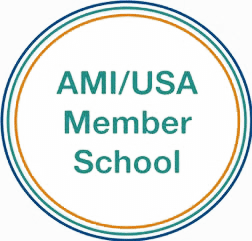One of the foundational principles of the Montessori philosophy is that the brain is connected to the work of the hands. Children learn well when they are offered gentle guidance and the opportunity to touch, move, and otherwise manipulate objects in the world around them.
This is one of the reasons interlocking bricks are such a great tool for teaching math skills to children in Montessori primary groups. If you’re on the fence about incorporating this resource into your classroom, discover four ways it can help children develop an authentic and lasting understanding of mathematical concepts.
1. Counting and Quantifying
One of the most straightforward ways that interlocking bricks help Montessori primary children learn math skills is by giving them a fun and sensorial way to learn to count and quantify objects. Children can simply count the bricks as they lock them together or count the number of bricks in a structure someone else built.
Doing this will help children develop number sense, contribute to their ability to understand order and sequence, and teach them to follow step-by-step instructions later on. It also helps them connect their understanding of numbers to something concrete they can touch, which further solidifies the math skills they’re developing.
2. Learning Geometric Shapes
Interlocking bricks allow children in a Montessori primary program to move their bricks into different shapes. Depending on the type of interlocking bricks you’re using, they may already come in different shapes and colors.
Even if a child has not yet discovered the given name for a particular shape, they can observe which shapes have pointed edges and which are round.
They can also see how shapes might fit together to look like other objects they recognize, which helps primary-aged children develop their ability to make connections and associations within nature and the world around them.
3. Understanding Patterns
Interlocking bricks present the perfect opportunity to help Montessori primary children develop their mathematical minds through understanding patterns. In a general sense, patterns are anything — including colors, pictures, shapes, or other objects — that repeat themselves in a logical and sometimes predictable way.
Playing with a set of interlocking bricks and noticing patterns in the way they are put together can help a child learn to make predictions. They’ll learn to use their reasoning skills to understand relationships, make connections, and figure out what’s likely to come next.
4. Measurements and Dimensions
Children in a Montessori primary program can use interlocking bricks to play with ideas around measurement and dimension by building structures that are low, high, wide, and multi-dimensional. This introduces them to dimensional concepts such as height, length, width, and depth.
As they progress over the years, children can use the blocks to compare structures to each other, observing which structures are taller, longer, wider, or deeper than others. This is also a skill that helps them make sense of the world around them and will transfer nicely to other real-world lessons.
Learning Math Skills Through Practical and Sensorial Activities
It’s important to realize that pencil and paper activities are not the only way to help children develop their math skills.
Counting interlocking bricks and observing how they fit together to mimic shapes, patterns, and dimensions in the world around them can help them make lasting mathematical connections that are more likely to transfer to more complex topics and ideas later on their developmental paths.
If you’re looking for a Montessori primary program to help your preschool or kindergarten-aged student develop a love of learning through practical activities and sensorial materials, our team at Montessori West would love to see how we can help. Contact us today to learn more about our programs and how a Montessori approach may be just what your child needs to flourish and thrive.
